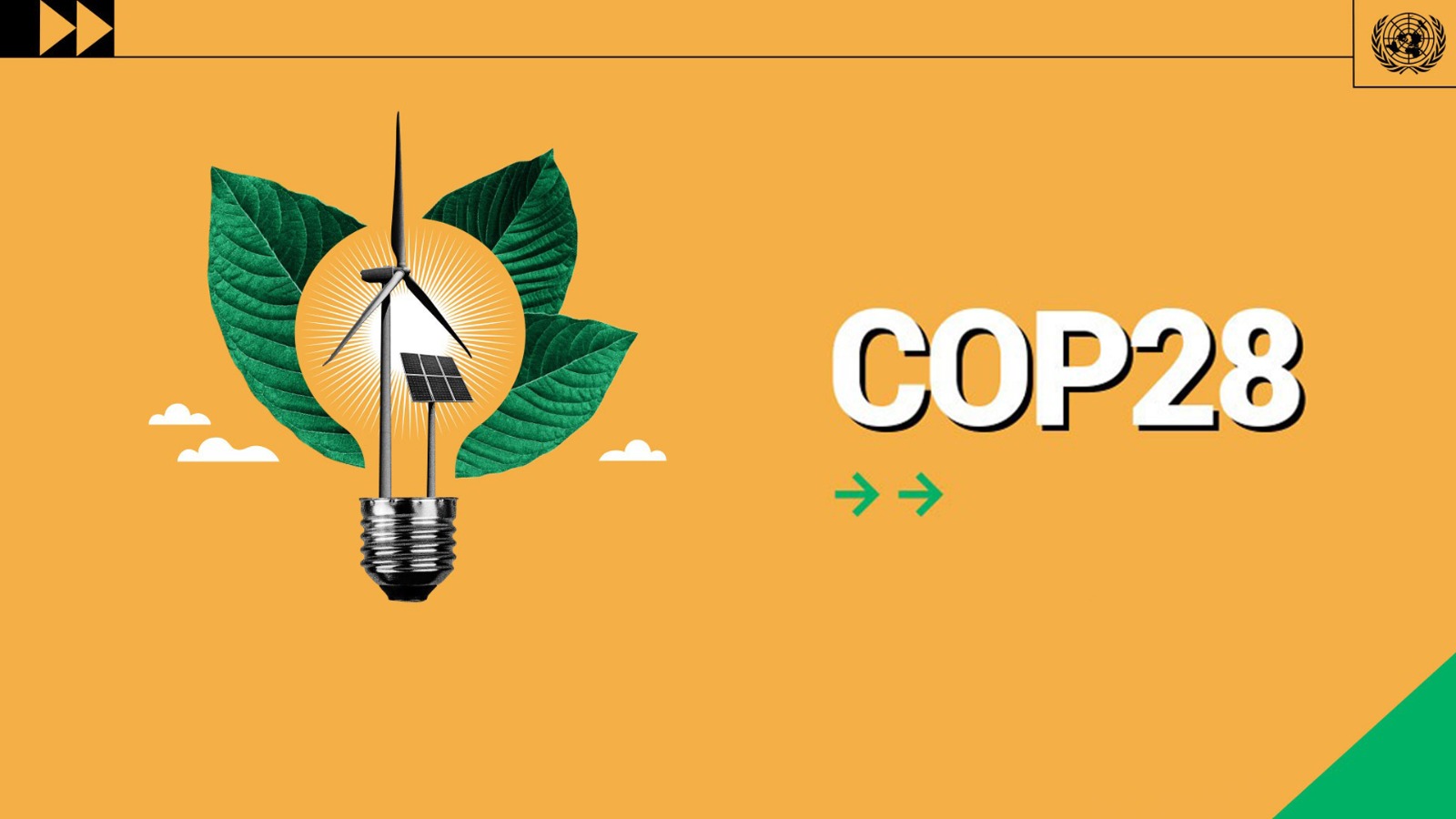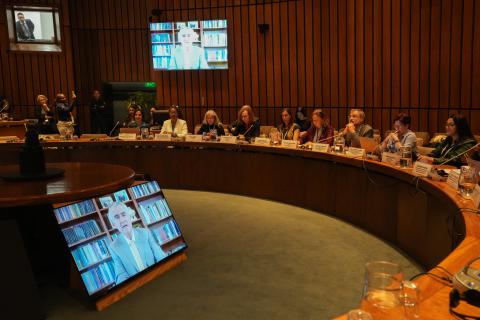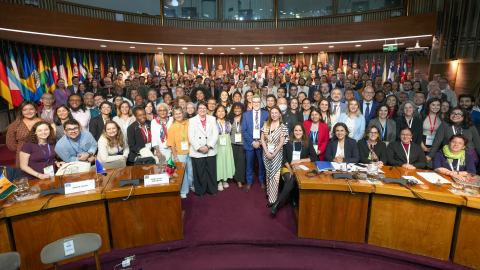Briefing note
Climate financing needs for Latin America and the Caribbean, the just transition, the connections between the climate and nature, and the Regional Agreement on Access to Information, Public Participation and Justice in Environmental Matters (better known as the Escazú Agreement) are the priority issues that the Economic Commission for Latin America and the Caribbean (ECLAC) will promote at the 28th Conference of the Parties to the United Nations Framework Convention on Climate Change (COP28), a crucial milestone in the fight against the climate and ecological crisis that will take place in the city of Dubai, United Arab Emirates from November 30 to December 12.
ECLAC’s delegation will be led by José Manuel Salazar-Xirinachs, the regional organization’s Executive Secretary, who will participate in numerous sessions at the global forum, which this year offers a unique opportunity to assess progress on the Paris Agreement from 2015 and to establish a plan for drastically reducing emissions and protecting lives and means of subsistence in a context of concern over record global temperatures and extreme climate events.
The COP28 in Dubai brings together leaders from governments, businesses, non-governmental organizations and civil society with a clear goal: to address the climate emergency. Science has emphasized the imperative need to reduce greenhouse gas emissions by 2030. This call goes hand in hand with ECLAC’s work in Latin America and the Caribbean, particularly its clarification of the financing needs for sustainable and inclusive development. Specifically, it stresses the relevance of financing to achieve a just transition to low-carbon economies, by getting behind key sectors such as renewable energy, electromobility and regenerative agriculture, protecting the region’s valuable ecosystems, and supporting ever-more urgent investments in adaptation and resilience.
In this context, ECLAC will have significant participation in the United Nations Conference on Climate Change.
On Friday, December 1, the Commission’s Executive Secretary, José Manuel Salazar-Xirinachs, will be one of the main speakers at a side event, co-organized by ECLAC, entitled The leading role of Latin American and Caribbean parliamentarians in building a new green and inclusive development model, which aims to give visibility to and debate legislative strategies for building a new model of green, sustainable, inclusive and just development in the region. This event will also feature the signing of the OPCC Joint Statement, where Latin American and Caribbean parliamentarians will join together to further a green and inclusive development model.
On Saturday, December 2, meanwhile, José Manuel Salazar-Xirinachs will participate in an event called A positive agenda for trade, climate and development goals, organized by the United Nations Conference on Trade and Development (UNCTAD).
ECLAC’s Executive Secretary will also be present at an event led by the CAF – Development Bank of Latin America and the Caribbean entitled “We are resilience, we are solutions”, which will be held on December 2 and seeks to create a space for reflection, debate and analysis on knowledge, trends and progress related to adaptation, disaster risk management and resilience in Latin America and the Caribbean.
On Sunday, December 3, the regional organization’s highest authority will attend the event What Human Rights at 75 means for climate justice now, which, in celebration of 75 years of the Declaration of Human Rights, will explore how human rights – including the right to a clean, healthy and sustainable environment – can reshape how States, businesses, people and courts address climate change, climate action and their impacts to achieve transformative change.
That same day, he will participate in an event entitled “Climate justice in defense of the territories, the protection of the Amazon, Caatinga and other biomes: Opportunities with the Escazú Agreement.”
Later, he will sign a framework agreement for collaboration with the International Union for Conservation of Nature and Natural Resources (IUCN), which seeks to establish a general framework for cooperation between the parties to carry out activities in specific areas related to sustainable development, biodiversity conservation, climate change, ecosystem restoration and ecosystem services, with special emphasis on Principle 10 of the Rio Declaration on Environment and Development and the Escazú Agreement.
Another relevant event is that of “Economic cooperation between Spain and Latin America to finance the fight against climate change”, where ECLAC’s Executive Secretary, José Manuel Salazar-Xirinachs, will play a prominent role next Monday, December 4, upon presenting ECLAC’s report entitled The economics of climate change in Latin America and the Caribbean, 2023: Financing needs and policy tools for the transition to low-carbon and climate-resilient economies, which outlines crucial strategies and requirements for the region in the context of sustainable development.
Finally, on December 6, he will address along with the other UN Regional Commissions the challenge of inclusive and responsible management of critical minerals for the energy transition. And on Saturday, December 9, José Manuel Salazar-Xirinachs will participate by video message in the event “The Escazú Agreement as a catalyst of climate empowerment actions”, organized by the Government of Mexico, FIMA and ECLAC.
In addition to the aforementioned events, ECLAC will be represented in other activities held in the framework of COP28, where it will seek to generate relevant discussions and promote concrete actions for moving towards productive, inclusive and sustainable development in the region.
These activities are part of an agenda committed to addressing key challenges for Latin America and the Caribbean’s well-being in the global context of the fight against climate change and the push towards a more sustainable economy.



